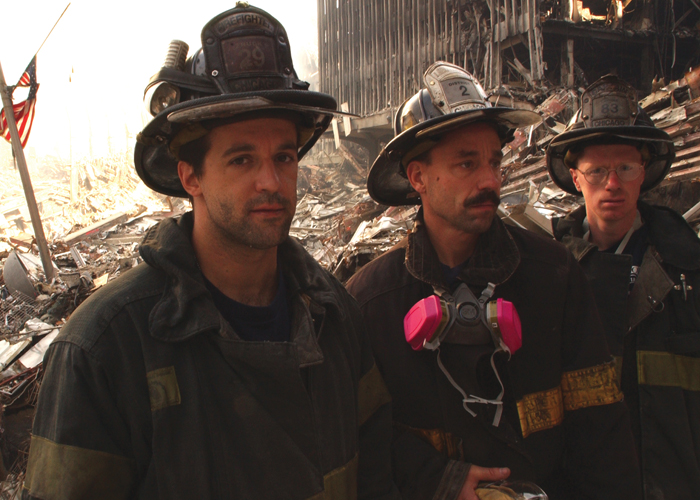Responders
 For months after the attacks, 9/11 responders worked tirelessly in the rescue and recovery efforts at the World Trade Center site. Many of them later experienced serious mental and physical illnesses as a direct result of this work.
For months after the attacks, 9/11 responders worked tirelessly in the rescue and recovery efforts at the World Trade Center site. Many of them later experienced serious mental and physical illnesses as a direct result of this work.
Our social workers have conducted teleconference and in-person support groups for 9/11 first responders. Staff members and interns meet with responders to record their stories for the 9/11 Living Memorial Project. We disseminate information relevant to responders in our newsletter, via email and at our annual Information Forum.
VOICES presently works with the World Trade Center Health Program to inform responders about their eligibility and the application process for medical and mental health care under the program. Together with our partners at the Mental Health Association of New York City, we have attended health fairs and hosted events for responders to help responders learn more about the program.
In the aftermath of 9/11, tens of thousands of men and women participated in rescue, recovery, and relief operations at the World Trade Center site, the Pentagon, and in Shanksville, PA. Today, thousands have become sick or have died from 9/11-related health conditions due to their exposure to toxins at the 9/11 disaster sites. Over the years, VOICES has provided a range of support services to meet the evolving needs of responders, including telehealth support groups, webinars, conferences, documenting their stories for the 9/11 Living Memorial, and assisting them in the process of enrolling in the WTC Health Program.
In the aftermath of an act of mass violence or tragedy where there is loss of life and/or injury, those impacted are often in shock and uncertain about how to access critical information. Whether you are a family member who lost a loved one, or someone who survived or witnessed the event, you will need guidance on how to find resources in the days and months ahead.
The spread of the Coronavirus (COVID-19) is the most serious global health threat we have faced in our lifetime. Many communities around the world have imposed much-needed restrictions by implementing quarantines and social distancing to slow down the spread of the virus. What was once a casual greeting, “How are you?” has real meaning in light of the spread of the virus.
